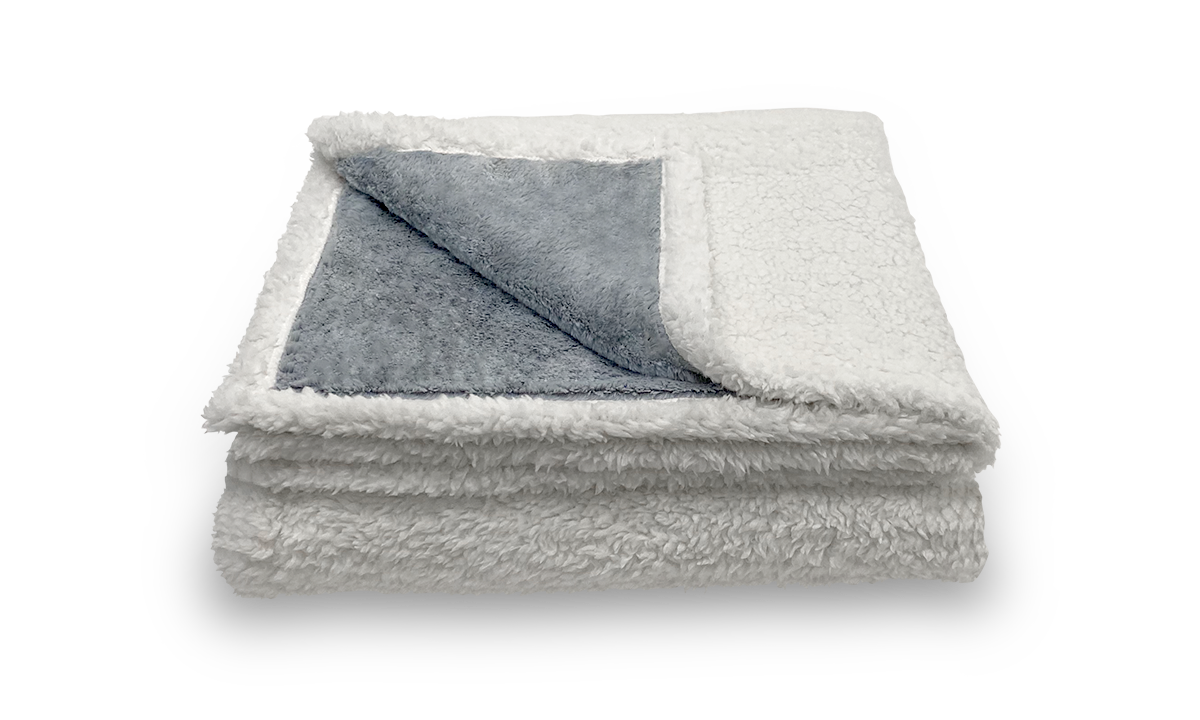In the search for better sleep and relaxation techniques, compression blankets and weighted blankets have emerged as two popular options. While both aim to provide comfort and reduce anxiety, they do so in different ways. This blog explores the unique benefits of each, helping you decide which blanket is more suited to your needs.
Compression Blanket vs Weighted Blanket: Understanding the Differences
Understanding Compression Blankets
Compression blankets, sometimes referred to as pressure blankets, are designed to deliver a firm, even pressure across the body. They are made from stretchy, snug materials that conform to the body’s contours, providing a comforting pressure similar to a firm hug.
- Material and Design: Compression blankets are typically made from a blend of spandex or Lycra, materials known for their elasticity. This allows the blanket to stretch over the body and then snugly conform back, providing constant, even pressure without additional weight.
- Functionality: The primary function of compression blankets is to stimulate deep touch pressure, which can help reduce anxiety, increase serotonin production, and improve overall mood.
- Ideal for: Those who prefer lighter blankets but still seek the benefits of deep pressure for relaxation and sensory integration therapy, particularly beneficial for individuals with sensory processing disorders, autism, and anxiety.
Understanding Weighted Blankets
Weighted blankets are filled with materials such as plastic poly pellets, glass beads, or even sand, distributed evenly to add weight across the blanket. The weight provides deep pressure stimulation to the user, mimicking the feeling of being hugged or held gently.
- Material and Design: These blankets are often made with a comfortable fabric like cotton or minky and are stitched into compartments to keep the weighting material evenly distributed.
- Functionality: The additional weight of these blankets engages deep touch pressure points across the body, which can help increase relaxation, aid in easing insomnia, and decrease anxiety.
- Ideal for: Those who suffer from sleep disorders, anxiety, ADHD, or conditions where calming and grounding are necessary. Weighted blankets are especially popular for their ability to help soothe and settle for a restful night’s sleep.
The Puffy Lux Mattress complements the blanket’s pressure, enhancing the body’s natural relaxation response and ensuring a deep, restful night.
One million Americans are sleeping better with Puffy. Compare our award-winning mattress collection against other brands to learn why: Puffy vs Purple, Puffy vs Nectar, Puffy vs Casper, Puffy vs Leesa, Puffy vs Saatva, Puffy vs Dreamcloud, and Puffy vs Tuft & Needle.
Comparing Benefits: Compression Blanket or Weighted Blanket?
Key Factors to Consider:
- Weight Sensitivity: For those sensitive to heavy weights or who feel claustrophobic under heavy bedding, compression blankets may be a more suitable option. They provide the benefits of pressure without the significant weight.
- Temperature Regulation: Weighted blankets tend to be warmer due to their materials and weight, making them ideal for cooler climates or for people who enjoy warmth while sleeping. Compression blankets, being lighter and made of breathable materials, are more suited to warmer climates or for those who tend to overheat at night.
- Ease of Maintenance: Compression blankets are generally easier to care for as they can often be washed and dried at home due to their lighter, more flexible materials. Weighted blankets, especially those with a significant amount of weight, might require special handling, with many needing hand washing or professional cleaning to prevent damage to a home washer or dryer.
Personal Preferences and Needs:
- Sleep Preferences: If you prefer a blanket that can help with sleep without the added heat, a compression blanket might be your best bet. If you are looking for something that can help you feel secure and warm, a weighted blanket is ideal.
- Health Considerations: Consider any specific health conditions that might influence your choice. For example, weighted blankets are often recommended by therapists for patients with anxiety, PTSD, and sensory processing disorders due to their significant calming effects.
Practical Considerations
- Comfort and Usability: Compression blankets are generally more breathable and less likely to cause overheating compared to weighted blankets.
- Maintenance: Weighted blankets often require special care, especially if filled with materials that need to be evenly distributed and kept dry. Compression blankets are typically easier to wash and dry.
- Cost: Weighted blankets can be more expensive due to the high-quality materials needed to ensure even weight distribution and durability.
Integrating the therapeutic comfort of a compression or weighted blanket with the supportive nature of a Puffy Lux Mattress can create an optimal environment for relaxation and sleep.
In my own home, experimenting with both a compression blanket and a weighted blanket has given me profound insights into their benefits. While the compression blanket is my go-to for daytime relaxation without the heaviness, the weighted blanket is indispensable for deep, uninterrupted sleep, especially during stressful periods.
Conclusion
Both compression and weighted blankets offer unique benefits that cater to different preferences and needs. By understanding the specific qualities and advantages of each, you can make an informed decision that enhances your comfort and well-being, ensuring you choose the best option for your health and lifestyle.

- Oeko-Tex® Standard 100 certified.
- Hypoallergenic.
- Lifetime warranty.
- 101-night sleep trial.
- Free shipping and returns.












